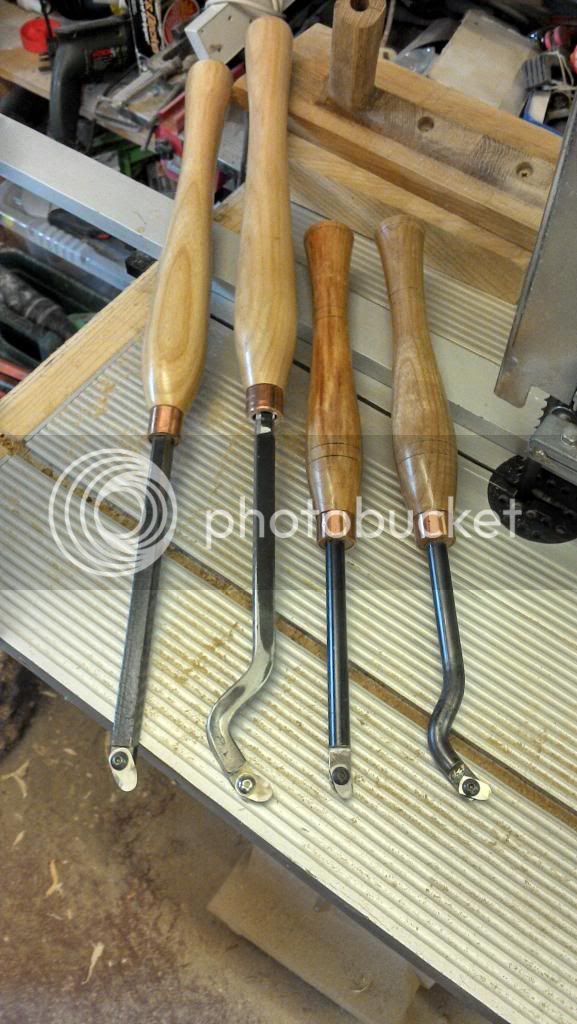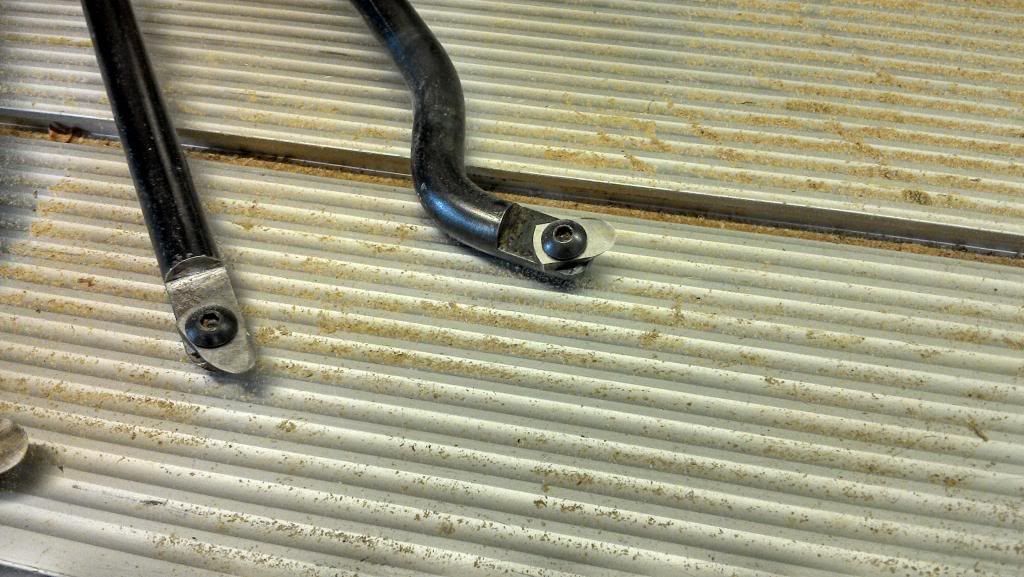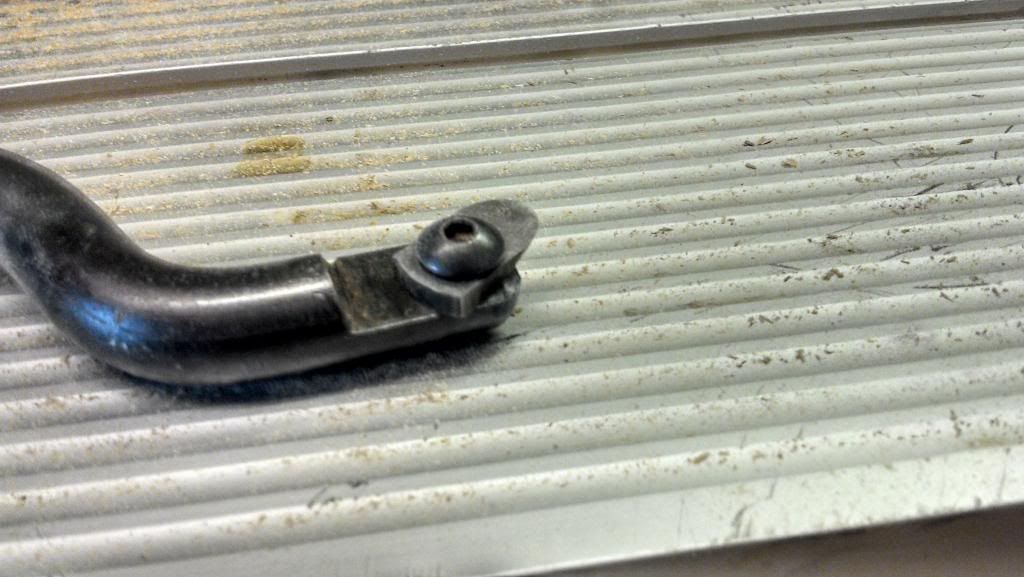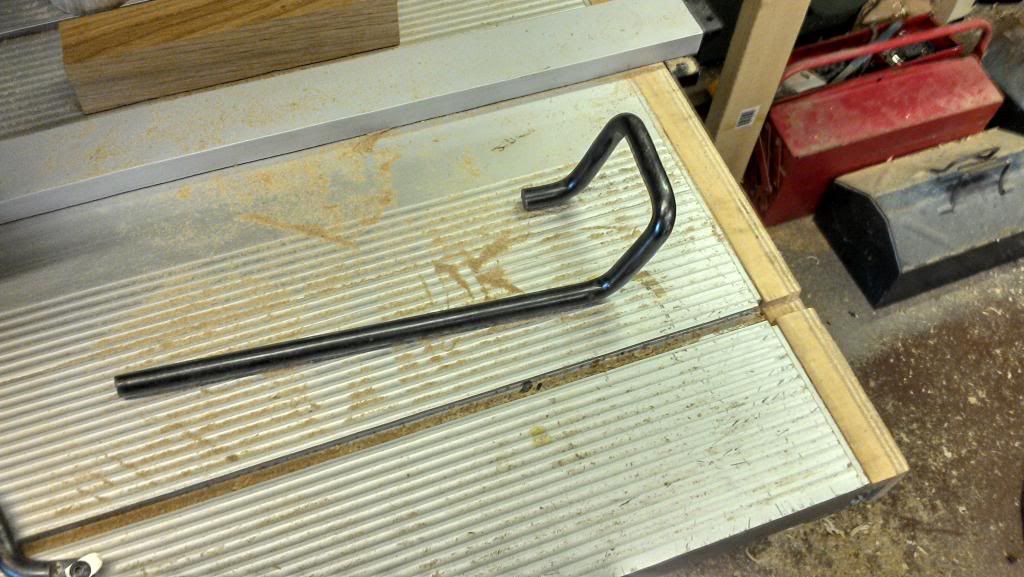nicguthrie
Established Member
Hey again guys, just looking for a more informed opinion than my own, and some back up in reasoning things out.
I've only recently taken up Turning, and I've found that I love it! I've spent a few weeks worth of my free time practising spindle work with my skew to the point where I can get a nice clean shiny finish, if the wood is co-operative and the design not too fiddly, and I've reduced my dig-in rate from once every 2 seconds to about once every 30 minutes, so I'm very happy.
However, I bought my stuff as a total newby, and chose what seemed a good bargain at a cheap price, but a few of the tools are way too big for the projects I do, especially any bowl or vase stuff, So... I'm considering selling on a few of my larger tools and buying myself a more compact set. I lack storage space in my workshop, and I've rather liked the look of the Robert Sorby Turnmaster, with it's interchangeable cutters and heads. I'm attracted to the idea that it seems to be able to do everything from spindle work of midi to reasonably mini size, and hollowing too, just by a change of cutter, and it doesn't seem egregiously expensive, unlike some of it's competitors.
Thing is, I'm also well aware that woodwork seems to bring out the worst of the gadget for gadget sake money making crowd, and I don't want to invest £150 odds (with cutters etc) in a product that's not as good as it looks or even just not up to the task at hand.
Does anyone have any experience with it? Are any of it's competitors considered a lot better, or generally accepted as the dogs danglers? I actually discovered it while looking up the american easywood range, but that seemed expensive and seemed to need several handles, whereas you can just buy a few heads at £18 each and swap cutters that way on the Turnmaster. Then there's the huge range of hollowers (little & big brother system, sovereign, etc.) that all seem to me to be for larger projects, but again, I'm new, so I dunno.
If anyone would be willing to share some thoughts with me, it'd be a help. I may be missing some fatal flaw in the tool that is glaringly obvious to the experienced, so opinions and experiences please?
There's a wee video of the system here http://youtu.be/ccy5jHo5WGQ
Thanks.
Nic
I've only recently taken up Turning, and I've found that I love it! I've spent a few weeks worth of my free time practising spindle work with my skew to the point where I can get a nice clean shiny finish, if the wood is co-operative and the design not too fiddly, and I've reduced my dig-in rate from once every 2 seconds to about once every 30 minutes, so I'm very happy.
However, I bought my stuff as a total newby, and chose what seemed a good bargain at a cheap price, but a few of the tools are way too big for the projects I do, especially any bowl or vase stuff, So... I'm considering selling on a few of my larger tools and buying myself a more compact set. I lack storage space in my workshop, and I've rather liked the look of the Robert Sorby Turnmaster, with it's interchangeable cutters and heads. I'm attracted to the idea that it seems to be able to do everything from spindle work of midi to reasonably mini size, and hollowing too, just by a change of cutter, and it doesn't seem egregiously expensive, unlike some of it's competitors.
Thing is, I'm also well aware that woodwork seems to bring out the worst of the gadget for gadget sake money making crowd, and I don't want to invest £150 odds (with cutters etc) in a product that's not as good as it looks or even just not up to the task at hand.
Does anyone have any experience with it? Are any of it's competitors considered a lot better, or generally accepted as the dogs danglers? I actually discovered it while looking up the american easywood range, but that seemed expensive and seemed to need several handles, whereas you can just buy a few heads at £18 each and swap cutters that way on the Turnmaster. Then there's the huge range of hollowers (little & big brother system, sovereign, etc.) that all seem to me to be for larger projects, but again, I'm new, so I dunno.
If anyone would be willing to share some thoughts with me, it'd be a help. I may be missing some fatal flaw in the tool that is glaringly obvious to the experienced, so opinions and experiences please?
There's a wee video of the system here http://youtu.be/ccy5jHo5WGQ
Thanks.
Nic





































